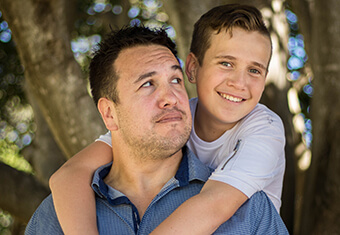Whether pension payments can be left by will to another person depends on the type of pension plan. The rules differ depending on whether the pension is paid from a private pension plan, such as an employment pension, or a public pension plan such as the Canadian Pension Plan (CPP).
Canada Pension Plan
Survivor’s Pension
The CPP survivor’s pension is a monthly payment paid to the individual who, at the time of death, is the legal spouse or common-law partner of the deceased contributor. Establishing proof of a common-law relationship or that a common-law relationship existed prior to marriage, requires the execution of a statutory declaration.
The amount received by the surviving spouse or common-law partner will depend on the following factors:
- Whether the deceased contributor is also a recipient of CPP disability benefit or retirement pension;
- The survivor’s age; and
- How much, and for how long, the deceased contributor paid into the CPP.
It is the responsibility of the surviving spouse or common-law partner to apply for the survivor’s pension. Eligible individuals should apply as soon as possible after the contributor’s death, since delays may result in a loss of benefits. The CPP will only make back payments for up to 12 months, which means that any further delays will result in lost benefits. At the earliest, a survivor’s pension will begin one month after the contributor’s death.
Death Benefit
The CPP death benefit is a one-time, lump sum payment to the estate or other eligible individuals on behalf of the deceased contributor. If the deceased leaves an estate, the executor is responsible for applying for the death benefit and should apply within 60 days of the date of death. If no estate exists, or the executor has not submitted an application, payment may be made to other persons who apply for the benefit in the following order of priority:
- The person or institution that has paid for, or is responsible for the funeral expenses of the deceased;
- The surviving spouse or common-law partner; and
- The next-of-kin of the deceased.
Children’s Benefit
The CPP children’s benefits provides monthly payments to dependent children of a deceased or disabled CPP contributor. In order to be eligible for this benefit, the child must be either:
- Under the age of 18; or
- Between the ages of 18 and 25, and attending a recognized school or university on a full-time basis.
In addition, the child must be in the custody and control of the contributor while under the age of 21 and either (i) a natural child of the contributor or (ii) adopted legally or “in fact” by the contributor. A child is no longer eligible for benefits once they turn 25 years old. For 2023, the current flat rate for the children’s benefit is $281.72 monthly.
Private Pension Plans
A private pension plan (“Individual Pension Plan” or “IPP”) is another form of retirement account created by a corporate employer or incorporated professional. IPP’s are governed by the Income Tax Act and various provincial legislative instruments.
A successor annuitant is a person who collects the benefits of a pension. Generally, the ability to appoint a successor annuitant depends on the type of pension plan. Often, such plans will permit pensioners to appoint a specific individual as their successor annuitant. However, in some jurisdictions, you may be permitted to only name your spouse as a successor. In addition, plans may also permit a pensioner to designate an individual as a “beneficiary” rather than a successor annuitant, in which case, the slightly different rules will apply
For further information about leaving your pension to a specified individual, please consult a TEP and, if applicable, your pension benefits contact at your employer.
 Canada
Canada  UK
UK

